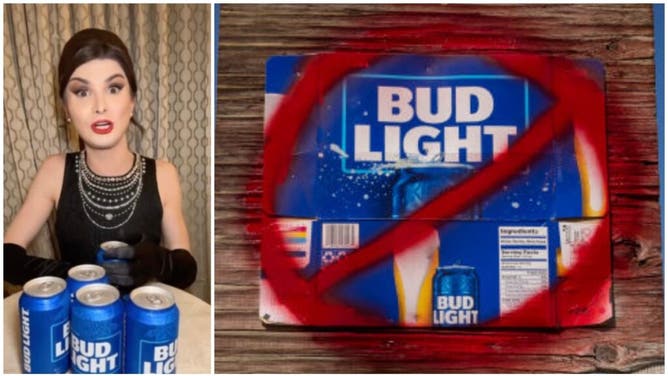Bud Light Collapse Proves Common Man Controls This Country: Bobby Burack
There's a lesson to be learned from the Bud Light-Dylan Mulvaney fiasco: you still control this country.
The government, media apparatus, and so-called influencers control the message. But the common man controls the results.
Corporations across America often neglect their customer base in favor of public relations. They mistake status for success.
Last month, Bud Light vice president Alissa Heinerscheid said the brand sought to rid itself of a "fratty” and “out of touch” standing by releasing a commemorative can on which appeared the face of Mulvaney.
The company assumed critical acclaim would meet the brand upon the release. Perhaps some puff pieces from the New York Times would follow. And maybe some nice tweets from the trans community.
Those are often the results of teaming with a trans influencer, after all.
Though this time, the pandering backfired. Bud Light consumers highjacked whatever positive PR the company received.
Or former Bud Light consumers.

Bud Light cuts loose marketing firm responsible for Dylan Mulvaney disaster. (Credit: Getty Images and Instagram)
In April, volumes of Bud Light declined 21.4% while parent company Anheuser-Busch recorded a fall of over 12%.
Anheuser-Busch carried a market cap of $132.38 billion the week prior to releasing the Mulvaney-themed can. Said market cap now sits at $126.46 billion.
It turns out that not only journalists and television anchors can damage a billion-dollar institution. So can beer buyers, people without large social followings, local bargoers, and "fratty" consumers.
The phrase "Go woke, go broke" is a tiresome cliche. And cliches are what unintelligent people turn to to win an argument. But the slogan is not without merit.
"Woke" represents a small wing of society. Only about 8% of the electorate aligns with the movement.
We documented last month how "woke-ism" crept into corporate America by seizing control of the megaphone.
"The greatest trick the woke ever pulled was convincing American culture they existed at large," is how we put it.
In short, influencers over-indexed woke influence by titling the conversation disproportionately in their preferred direction. They made woke seem more pervasive than it ever was.
The press and social media duped corporate executives in the process. They've convinced them that the society consensus supports each latest inclusivity campaign and social justice initiative.
That couldn't be further from the truth
Award shows, late-night television, and NBA, each plummeted in 2020-21 when they embraced BLM -- another idea more popular on the internet than in reality.
On the contrary, it's the brands that have undergone a cultural reversal that have regained consumer support. Take the case of Netflix for example:
"The Daily Mail recently profiled a swift change in the Netflix business model. The service removed programming about men birthing babies and “anti-racist” content from actual-racist Ibram X. Kendi. In lieu, Netflix doubled down on confrontational comedy, a la the Rock special.
"The philosophy stirred great financial success. Subscriptions rose by 7.6 million in the last quarter after years of steady decline amid trying to appease the perpetually offended."
Like Netflix early on, Bud Light fell for the ruse. It fell for the idea that Mulvaney is supported nationwide and that his "Girlhood" branding is empowering.
Bud Left fell unbeknownst that there's a society out there that considers Mulvaney either a troll of the female gender or a man suffering from grave self-loathe.
Ultimately, retweets and cheers prove moot when society at large does not support a product.
See, the culture war is not only a battle between the Left and Right. It also represents a power struggle between classes.
The ruling class cannot control your buying habits. It's perhaps the one element of your life that cannot control.
And you weaken them by not supporting the brands who embrace their campaigns, the brands whose interests run afoul of yours.
The Bud Light-Dylan Mulvaney saga demonstrates the power of the buyer, of the less influential, of a class of Americans so often neglected by the corporations they enrich.
There's a world outside the public sphere. And it's large. Company executives ought to visit it sometime.
Bud Light ought to do so immediately.